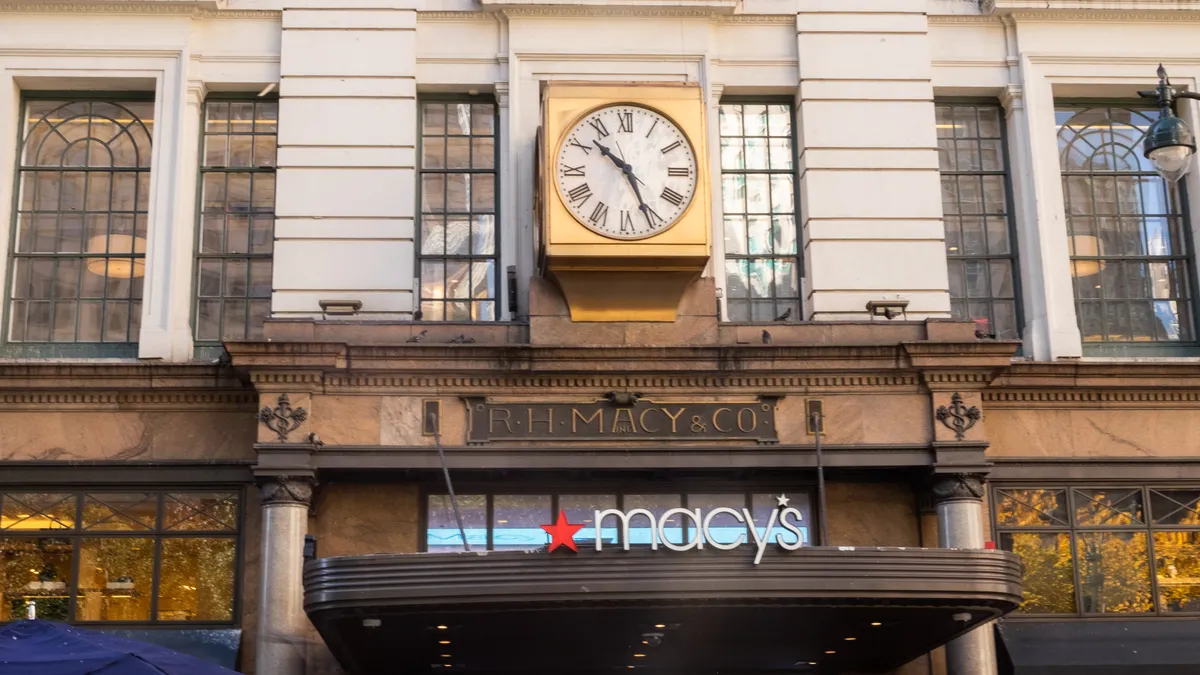Macy's began the year with high hopes, unveiling a "new North Star" strategy meant to turn around the country's largest and perhaps most iconic department store.
The COVID-19 pandemic interrupted that, and the retailer has instead scrambled to cut costs and shore up financing. Things are so dire that on Thursday the company said it is letting nearly 4,000 corporate employees go, along with staff at stores, in its supply chain and in customer support.
Among those leaving is Story founder Rachel Shechtman, Macy's confirmed to Retail Dive on Friday. She arrived in 2018 when Macy's bought her quirky New York City retail store and concept, and took a post designed just for her, "brand experience officer." Along with an investment in retail-experience startup b8ta, the move seemed to usher in an era of reinvention for the 150-year-old retailer.
"Rachel has been an outstanding member of the executive team, bringing us fresh perspective and her unique approach to experiential retail," a spokesperson told Retail Dive in an email. "We know she will continue to be an important voice and vision in retail."
Macy's reinvention arguably never materialized, even as it toyed with a new store format earlier this year led by Shechtman called Market by Macy's designed to be located at off-mall strip-centers, with one pilot in Texas. Story remained a shop-in-shop with revolving merchandising that never lived up to the original in New York's Chelsea neighborhood.
Instead, before the pandemic slammed the brakes, the turnaround centered on store closures, a private label apparel revamp, a shift to off-mall locations and an emphasis off-price. But that may not be enough, according to retail consultant Doug Stephens, who had counseled Macy's to buy Story in the first place in order to restyle its stores "as [a] media channel for brands built around unique experiences and events."
"In their deployment of STORY and Rachel Shechtman, Macy's squandered a golden opportunity to reinvent — not just the Macy's experience but the entire revenue model of department stores generally," he told Retail Dive in an email. "But instead of taking a whole Macy's store and moving it over to the STORY business model ... they chose instead to treat it as a bauble, a fanciful little concept inside the same horribly boring Macy's store. In doing so, they killed their most important chance at survival."
















